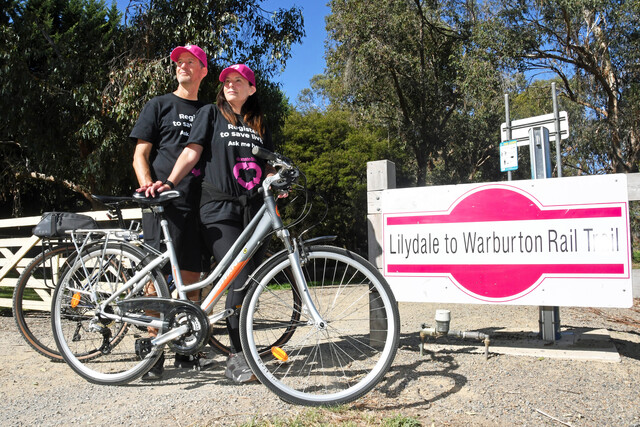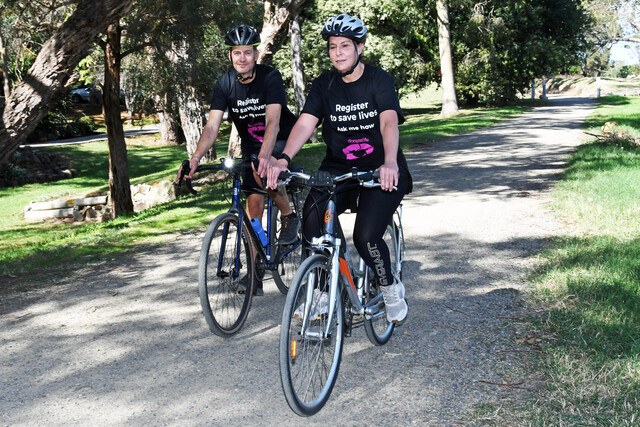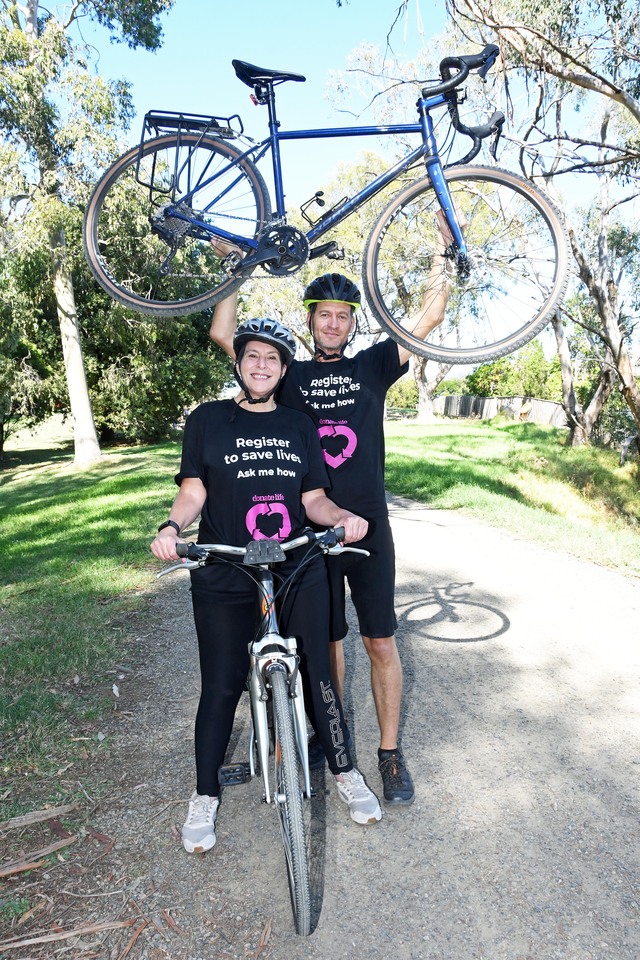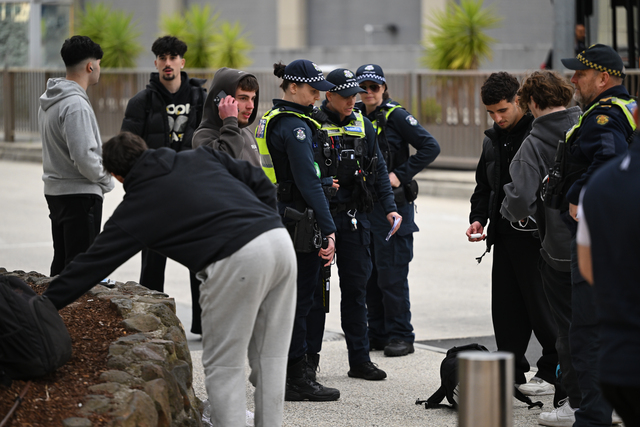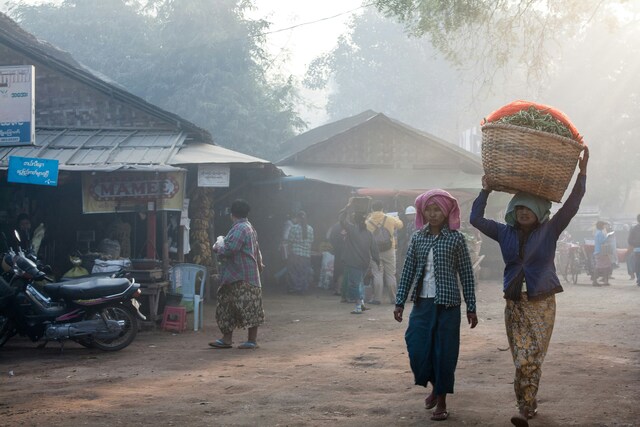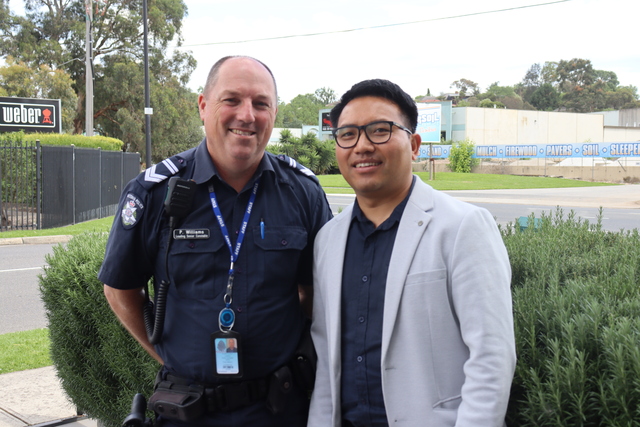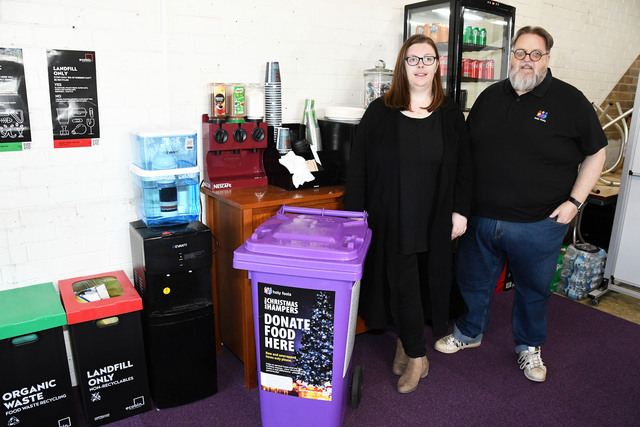Nikki Liebman was eating steak with mushroom sauce when she got the phone call to tell her she was going to get a liver transplant.
As if the words from the phone had sent her into shock, Ms Liebman’s heart thumped rapidly, and her breathing quickened.
She’d endured end-stage liver failure for months as she waited for a matched liver to become available, and a potential fix to her auto-immune condition was overwhelming.
Ms Liebman will never know her donor’s name, but they’d given her life at the cost of their own.
To honour her donor, she will ride along the iconic 80km-return Lilydale to Warburton Rail Trail for her one year transplant anniversary in May.
Roughly 25 years earlier, Ms Liebman was an active woman growing up in South Africa.
After she moved to Australia in 2004, she realised something was wrong when she wasn’t feeling her normal self and so she was diagnosed with primary biliary cirrhosis (PBC), an autoimmune condition that affects the liver bowel ducts.
For 20 years, life continued as normal. She managed her condition with medication and had two daughters. Then she got Covid-19, and everything changed.
“In May 2022, it was just a normal day, but then I started feeling nauseous. I thought I was coming down with a stomach bug,” Ms Liebman said.
“Lo and behold, that evening, I kept running to the bathroom, vomiting blood.”
Her two daughters, aged 12 and 10 years old at the time, rushed to her aid when they found her collapsed on the bathroom floor before she was rushed to hospital.
For the next year and a half, Ms Liebman’s life consisted of hasty hospital visits and deteriorating health.
She was told she had around two years to live without a liver transplant. But Ms Liebman hadn’t realised that the wait for a transplant would be excruciating.
“Day-to-day living was excruciating, you start developing brain fog, you have no energy, you’re tired, your body hurts, but then you just don’t know how long the process is going to take,” she said.
As she waited for the call, she tried to live a normal life, but the uncertainty was crippling.
She described the wait as being pregnant and not knowing when you were going to go into labor, only that she had no idea if she’d receive a transplant before her body gave out.
Her life was a haze of pain and fatigue, and her daughters were there to witness it all.
“It’s something that young teenagers, especially at that age, should never have to go through or see.”
Eight weeks later, she got the phone call.
The person on the other end of the receiver briefed Ms Liebman: “Hi, this is the story, there’s a potential donor, you have to come into hospital.”
Then: “Just breathe.”
What followed, Ms Liebman said, was all a blur. But by the next morning, she woke up to hospital gowns and face masks towering over her.
“The nurses and the doctors were saying to me: ‘Well done, you’re amazing, you’ve come out of this’, and I just had this sense of euphoria.”
“I don’t know what my option would have been without it. I would not have survived,” Ms Liebman said.
It’s this reason why Ms Liebman wishes to raise awareness surrounding organ donation.
According to DonateLife, four out of five Australians support organ and tissue donation, but only one in three are actually registered.
Ms Liebman said this is usually because the vast majority haven’t been affected themselves personally, so they simply forget.
“You hear about it, but you don’t know the ins and outs because when you don’t know anything about it, why do you need to research, because it hasn’t affected you personally.”
Donatelife urges everyone to join the organ donor registry – it takes one minute to sign up, and you only have to be over the age of 16 to join.
Only your email and medicare card details are required – to register, visit donatelife.gov.au or register through Medicare.
“Often it happens that it’s family members or friends, once someone they know has gone through it, then people start spreading the word. But it doesn’t have to be that way.”
But, she’s not the only one – Ms Liebman’s story is shared by 1800 Australians on organ waitlists today.
It’s not only older populations receiving these transplants either – organ donations could give young people with early health complications a chance to live.
“Young kids are able to have a bright future because the right person registered to become an organ donor – it’s super important,” she said.
Since DonateLife’s national organ donor program started in 2009, just under 19,500 people have received life-saving transplants from 7,000 deceased organ donors.
Though one organ donor can save the lives of up to seven people, there’s still strict requirements in place, which means only a small portion of donors have their organs donated.
Ultimately, it only increases the importance of getting more people on the donation registry.
It’s also vital for newly registered donors to tell their family, because the family has to give consent to actually have their organs donated.
Despite the hardship she’s endured, Ms Liebman said she’s always been a “glass half full kind of person”.
When she spoke of her journey, her voice was animated and lively. It was clear that she had so much more life to live in this world.
Now, her focus is set on training for the big ride. She said she was taken aback at the beauty of Warburton and felt it was the perfect spot for her commemoration.
“There’s just something about Warburton. It’s just such a beautiful spot,” she said.
In reference to her transplant anniversary bike ride, she used the word ‘celebration’ hesitantly. Though her life had been saved, she’s aware that another family had mourned the death of a loved one.
“You want to celebrate life but you also want to remember the donor,” she said.
“Because there’s the sad side of it – that another family has gone through pain. So you also want to remember that they had a life and that they gave you life.”
Ms Liebman recalled lying in her hospital bed after her surgery, staring out the window into the night. Outside, brightly-lit highways glimmered in the distance the world went about their lives.
“Here I am lying in this hospital bed, looking out at the lights and the cars going by, and I just thought to myself, I really have this opportunity of a new life.”
“And I couldn’t stop thinking of my donor. I don’t know who my donor is, I’ll never know who they were, but I owe it to them.”

